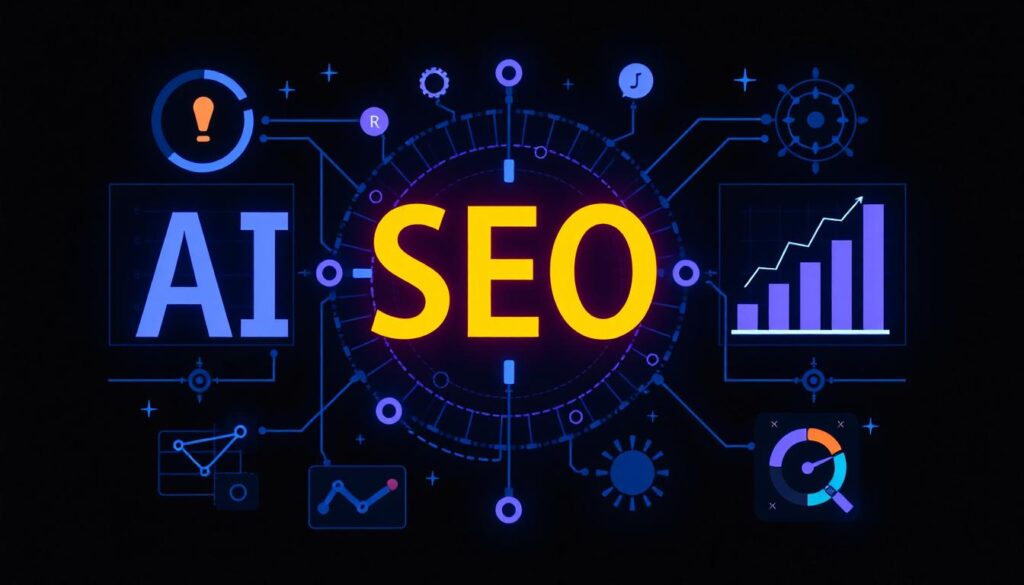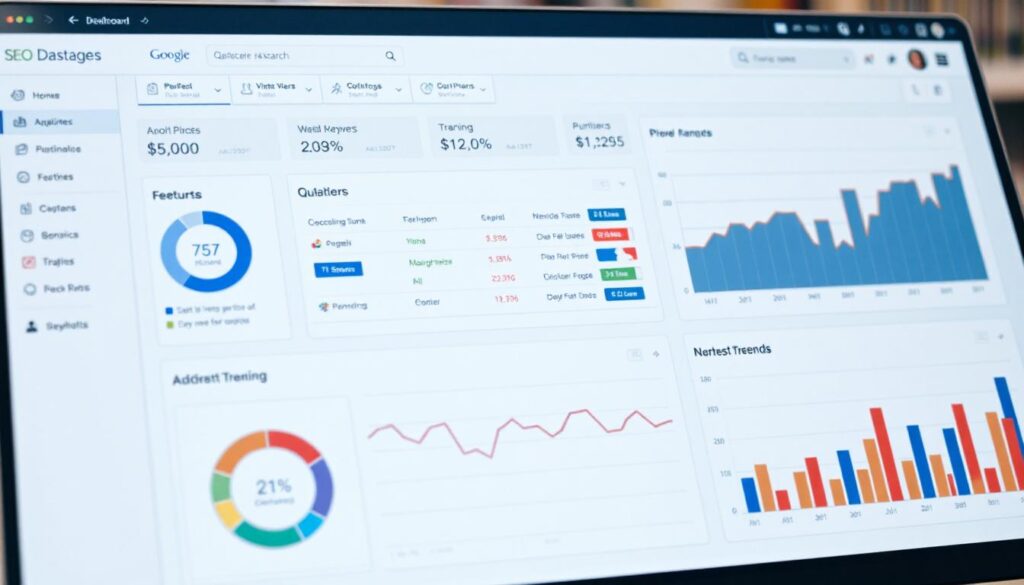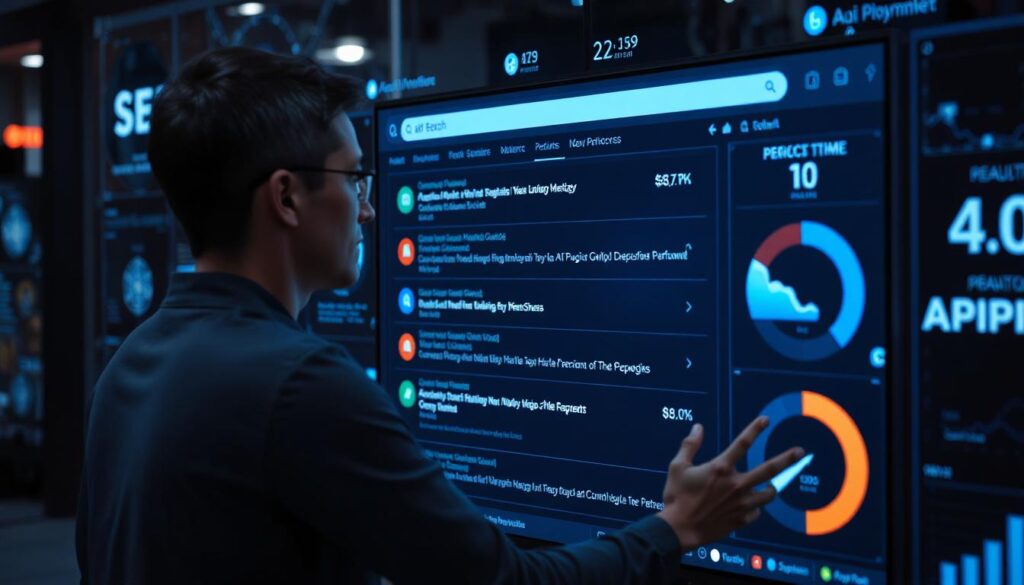Introduction
The digital landscape is rapidly evolving, and artificial intelligence is at the forefront of transforming how search engines operate. AI-powered search engines are now capable of delivering more intuitive, context-aware, and personalized results that cater to individual user preferences and behaviors. This transformation is not merely about improving the efficiency of search engines; it fundamentally alters the user experience by making information retrieval faster and more relevant. As search engines become smarter and more adept at understanding natural language and user intent, businesses and digital marketers must adapt their search engine optimization (SEO) strategies accordingly.
In this article, we will delve deeper into how AI is reshaping the search landscape, examining the implications for businesses and providing actionable insights for digital marketers looking to stay ahead in this ever-changing environment.

How AI is Changing Search Algorithms
Search engines are evolving through AI-driven models that utilize machine learning and natural language processing (NLP) to enhance search capabilities. These technologies enable search engines to understand user intent rather than just matching keywords, resulting in more accurate and relevant outcomes. By analyzing context and semantics, AI personalizes the search experience based on user interactions, location, and preferences. Additionally, advancements in voice and visual search create a more engaging experience.
AI also improves spam detection and content quality assessment, allowing search engines to prioritize authoritative sources. This results in fewer misleading or low-quality pages appearing in search results. AI can analyze user behavior in real time, refining search rankings dynamically based on engagement metrics. Features such as AI-driven ranking algorithms, predictive search suggestions, and deep learning for semantic analysis make search engines more intuitive. Consequently, businesses must focus on content relevance, quality, and user engagement to meet the changing expectations of search engines and users.
AI-powered search engines leverage large language models to deliver more accurate and contextually relevant results, as explained in How Does Large Language Models Work.

The Impact of AI on Keyword Strategies
In the past, SEO heavily relied on exact-match keywords and backlinks. With AI-powered search, keyword strategies need to be more sophisticated. Search engines now prioritize:
- Semantic search: AI understands synonyms, related phrases, and context rather than just exact terms.
- Conversational queries: With the rise of voice search, long-tail and question-based keywords are gaining importance.
- Search intent optimization: Pages ranking higher are those that answer the user’s query rather than just containing the keyword.
- Entity-based SEO: Search engines analyze relationships between words, entities, and concepts, making structured data and schema markup essential.
- Content clusters over single keywords: Grouping content around broader topics helps search engines understand the depth and relevance of information.
SEO professionals must adapt by producing high-quality, topic-focused content that meets user intent and enhances the search experience. AI-driven tools can assist in identifying keyword trends and search intent, providing insights that help businesses refine their content strategies. Additionally, optimizing for latent semantic indexing (LSI) keywords ensures that content remains relevant even when users phrase queries differently.
The integration of AI in search is transforming content marketing strategies, a change highlighted in Why AI in Social Media Marketing is a Game Changer.

AI-Powered Search and Content Optimization
In the evolving SEO landscape, while content remains crucial, AI has transformed how search engines evaluate it. Businesses must prioritize E-A-T (Expertise, Authoritativeness, Trustworthiness) to establish credibility, as Google’s AI favors authoritative sources. User engagement metrics like click-through rate, dwell time, and bounce rate are also vital for search rankings.
Leveraging AI insights can help develop data-driven content strategies that resonate with audiences. Additionally, focusing on content readability and structure enhances user experience, while incorporating interactive and multimedia formats can further engage users and improve visibility. AI tools analyze readability scores, recommend adjustments for better clarity, and suggest multimedia enhancements like videos or infographics to keep users engaged.
By aligning with these AI-driven factors, businesses can boost their search rankings and competitiveness in the digital marketplace. AI also helps automate content creation, allowing businesses to generate high-quality, optimized content faster while maintaining consistency in brand voice and messaging.
Using retrieval-augmented generation (RAG) techniques helps AI enhance search results by incorporating up-to-date information, detailed in What is Retrieval-Augmented Generation (RAG) Explained.

The Role of AI in Local and Personalized Search
AI has made search results more personalized than ever, tailoring results based on:
- User location and search history: Personalized recommendations based on geographical relevance.
- Behavioral data analysis: AI predicts user preferences based on past interactions.
- Voice search adaptation: With increasing voice searches, AI tailors responses to conversational and location-based queries.
- Hyperlocal SEO: Businesses must optimize for “near me” searches and maintain accurate Google Business Profiles.
- AI-driven featured snippets: AI determines the most relevant content for instant answers, pushing businesses to structure content accordingly.
Local businesses must prioritize location-based keywords, user reviews, and structured data markup to remain competitive in AI-powered local search. AI algorithms factor in user-generated data, such as reviews and check-ins, to improve local rankings. Additionally, businesses should integrate voice search optimization techniques, ensuring their content is easily accessible for voice-activated assistants like Siri and Google Assistant.
AI’s growing context-awareness and emotional intelligence also influence how search algorithms prioritize user intent, as discussed in AI is Becoming More Context-Aware and Emotionally Intelligent.

Future SEO Strategies in an AI-Driven World
As AI continues to advance, SEO strategies must evolve to keep up with new trends. Some key strategies include:
- Optimizing for conversational and voice search by focusing on natural language and FAQ-style content.
- Leveraging AI-powered SEO tools for keyword research, content optimization, and performance tracking. Examples are Website Content Optimizer, Email Content Optimizer, and SEO-Optimized Meta Descriptions and Tags Creator.
- Enhancing website experience with fast-loading, mobile-friendly, and accessible designs.
- Adapting to AI-generated search results by ensuring content provides direct, high-quality answers.
- Investing in AI-powered chatbots and automation to improve user engagement and customer interactions.
AI is also revolutionizing how search engines handle visual content. Image and video search capabilities are improving, meaning businesses must optimize multimedia assets with proper metadata, alt tags, and structured data. Additionally, AI-driven analytics will refine how SEO professionals assess website performance, making data-driven decision-making more precise.
Content creators must adapt to AI-powered search trends by using tools that boost productivity and ensure SEO relevance, which is covered in Boosting Productivity with AI-Powered Writing Assistants.

Conclusion
AI-powered search is transforming user engagement with online information, marking a significant shift in search algorithms and content discovery. For businesses and SEO professionals, adapting strategies is essential for survival in the digital marketplace. Prioritizing high-quality, user-centric content and optimizing for AI-driven ranking factors is crucial, as traditional keyword tactics are becoming obsolete.
Embracing AI in search strategies not only enhances online presence but also fosters long-term success, ensuring businesses stay competitive in a complex online environment. As AI technology continues to evolve, SEO professionals must stay informed, agile, and innovative, leveraging AI tools to refine their digital marketing strategies and maintain visibility in search engine results.

Leave a Reply